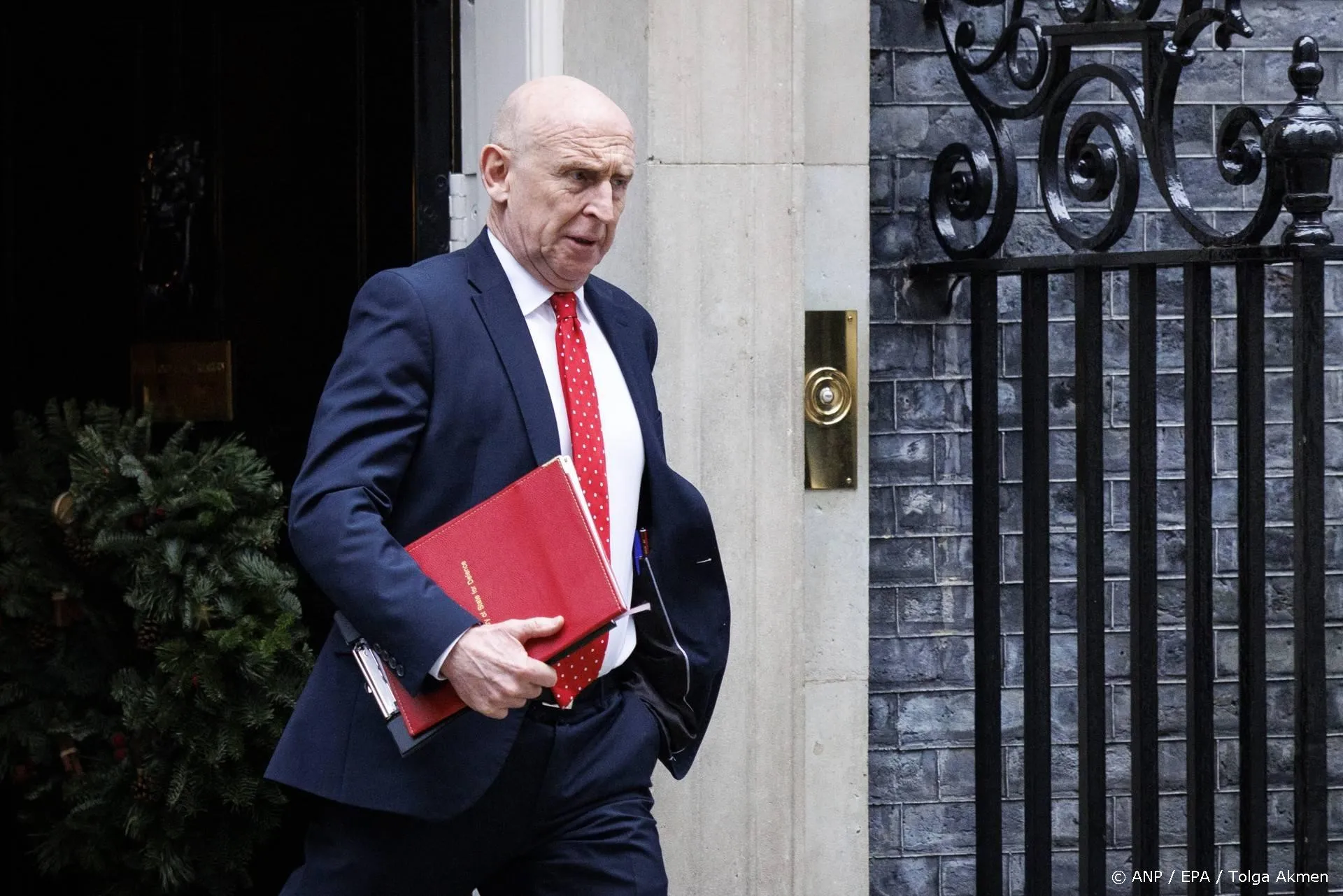De propagandaoorlog rond klimaat
Er woedt een hevige propagandaoorlog rond klimaat. De laatste dagen heeft de 'ontfutseling' van interne Heartland-documenten door een onbekende veel aandacht gekregen. Daaruit bleek dat dit instituut enkele miljoenen per jaar uitgaf aan zijn anti-AGW-campagne (AGW=Anthropogenic Global Warming). Dat zinkt uiteraard in het niet bij wat Greenpeace, het WNF en overheden uitgeven aan hun AGW-propaganda-activiteiten. Maar dat werd er in de meeste media niet bij verteld. Zie voor de cijfers hier
Van de pro-AGW-zijde wordt ook diep nagedacht over de wijze waarop de propaganda voor de klimaathype het best kan worden vorm gegeven. Onder de titel, 'Warm Words. How are we telling the climate story and can we tell it better?', heeft het Britse 'Institute for Public Policy Research' (IPRR) daar in augustus 2006 reeds een uitvoerig rapport over geschreven.
Het IPRR is:
... the UKs leading progressive think tank and was established in 1988. Its role is to bridge the political divide between the social democratic and liberal traditions, the intellectual divide between academia and the policy making establishment and the cultural divide between government and civil society.
Het rapport geeft er blijk van dat de auteurs meesters zijn in de hantering van technieken ter beïnvloeding (sommigen zouden zeggen: manipulatie) van de publieke opinie. Met de kennis van nu weten we echter dat de toepassing van hun recept niet heeft kunnen verhinderen dat een ruime meerderheid van het publiek 'klimaat' niet (meer) als een ernstig probleem ziet. Wat is er ondertussen mis gegaan?
Ik vermoed dat het antwoord op deze vraag dient te worden gezocht in de Climategate- en andere IPCC-schandalen; de moeilijke economische situatie, waardoor mensen wel wat anders aan hun hoofd hebben; en het feit dat Moeder Natuur maar niet wil meewerken, zoals blijkt uit de stabilisering van de gemiddelde wereldtemperatuur gedurende de laatste 10-15 jaar. Daarnaast dient natuurlijk ook de zeer actieve anti-AGW-blogosfeer te worden genoemd.
Ik pik een paar citaten uit het IPRR-rapport.
De openingszin!
Climate change is one of the greatest challenges facing mankind this century. Unchecked, no one will remain immune from its consequences. Yet we each contribute to it.
Het zal mijn trouwe lezers duidelijk zijn dat het met zo'n openingszin niet meer goed kan komen met het rapport. Maar laten we verder lezen.
If dangerous climate change is to be avoided, the publics contribution to it will need to be reduced dramatically. Deploying effective communications, as well as effective policies, will be essential. There is now more media coverage and communications on climate change in the UK than ever before. But there has not, up to now, been any systematic exploration of what it amounts to or what effect it may be having. This report aims to begin to fill that gap.
The report sets out the results of research into how climate change is being communicated and discussed in the UK, how it might be connecting or failing to connect with mass audiences, and how it could be made more effective.
Het rapport bevat scherpe en m.i. juiste observaties over het klimaat discours.
The research found that the climate change discourse in the UK today looks confusing, contradictory and chaotic. For every argument or perspective, whether on the scale of the problem, its nature, seriousness, causation or reversibility, there is a voice declaring its opposite. The conclusion must be that the battle is not won: climate change is not yet an issue that is taken for granted. It seems likely that the overarching message for the lay public is that in fact, nobody really knows. Nevertheless, we may be coming towards the end of this period of disputation and uncertainty. Although the climate change discourse is still very unstable and in flux, some streams emerged through this study as dominant or stable enough to capture. ...
There are three groups of climate change repertoires in the UK. There is an alarmist repertoire, which is fundamentally pessimistic and is in a category of its own, as well as two groups of optimistic repertoires one that includes repertoires that assume itll be alright and a more pragmatic set of repertoires that assume itll be alright as long as we do something.
Climate change is most commonly constructed through the alarmist repertoire as awesome, terrible, immense and beyond human control. This repertoire is seen everywhere and is used or drawn on from across the ideological spectrum, in broadsheets and tabloids, in popular magazines and in campaign literature from government initiatives and environmental groups. It is typified by an inflated or extreme lexicon, incorporating an urgent tone and cinematic codes. It employs a quasi-religious register of death and doom, and it uses language of acceleration and irreversibility. The difficulty with it is that the scale of the problem as it is shown excludes the possibility of real action or agency by the reader or viewer. It contains an implicit counsel of despair the problem is just too big for us to take on. Its sensationalism and connection with the unreality of Hollywood films also distances people from the issue. In this awesome form, alarmism might even become secretly thrilling effectively a form of climate porn. It also positions climate change as yet another apocalyptic construction that is perhaps a figment of our cultural imaginations, further undermining its ability to help bring about action.
Settlerdom (named after the settlers attitudinal typology devised to describe people with sustenance driven needs) is one of two significant optimistic but non-pragmatic climate repertoires. It rejects and mocks the alarmist discourse and with it climate change by invoking common sense on behalf of the sane majority in opposition to the doom-mongers. It dismisses climate change as a thing so fantastic that it cannot be true and reflects a refusal to engage in the debate. It is seen most clearly in the broadly rightwing popular press, but is also likely to be the stuff of pub conversations. It is significant because it is immune to scientific argument and its prevalence underlines that the task of climate change agencies is not to persuade by rational argument but to develop a new common sense.
British comic nihilism is another evasive rhetorical repertoire. Its rejection of climate change is whimsical, unserious, blithely irresponsible a sunny refusal to engage in the debate, typified by comic musings on the positive possibilities of a future with climate change. It is currently marginal, seen in just a few places in the middle-class press and radio. But it is potentially important because it is a very British repertoire (selfmocking and contrary, dealing with adversity and threat by use of humour) and a very middle-class one, which could be important if agencies choose to address a middle-class or professional audience.
Small actions is the pre-eminent pragmatic optimistic repertoire, and, along with alarmism, is the most dominant of all the climate repertoires, prevalent in campaign communications and mainstream popular press. It involves asking a large number of people to do small things to counter climate change. The language is one of ease, convenience and effortless agency, as well as of domesticity, seen in reference to kettles and cars, ovens and light switches. The problem with it is that it easily lapses into wallpaper the domestic, the routine, the boring and the too-easily ignorable. It can be lacking in energy and may not feel compelling. It is often placed alongside alarmism typified by headlines like 20 things you can do to save the planet from destruction. But this contrast can also be used to deflate, mock and reject alarmism and, with it, climate change.
Bringing together these two repertoires without reconciling them, juxtaposing the apocalyptic and the mundane, seems likely to feed an asymmetry in human agency with regards to climate change and highlight the unspoken but obvious question: how can small actions really make a difference to things happening on this epic scale?
Het rapport concludeert:
Many of the existing approaches to climate change communications clearly seem unproductive. And it is not enough simply to produce yet more messages, based on rational argument and top-down persuasion, aimed at convincing people of the reality of climate change and urging them to act. Instead, we need to work in a more shrewd and contemporary way, using subtle techniques of engagement. To help address the chaotic nature of the climate change discourse in the UK today, interested agencies now need to treat the argument as having been won, at least for popular communications. This means simply behaving as if climate change exists and is real, and that individual actions are effective. The facts need to be treated as being so taken-for-granted that they need not be spoken.
Lees verder hier
Deze passage zou afkomstig hebben kunnen zijn van het Ministerie van Waarheid uit het boek '1984' van George Orwell. Vele protagonisten van de AGW-hypothese, niet alleen in Engeland maar ook elders, blijken zich de aanbevelingen uit het rapport goed eigen te hebben gemaakt. Hoe vaak hebben we niet gehoord: 'The science is settled' of woorden van gelijke strekking? Het was een alibi om de sceptici op alle mogelijke en onmogelijke manieren het zwijgen op te leggen.
Maar dat is uiteindelijk niet gelukt!
Ga verder met lezen
Dit vind je misschien ook leuk
Laat mensen jouw mening weten
Lees ook
Loading


